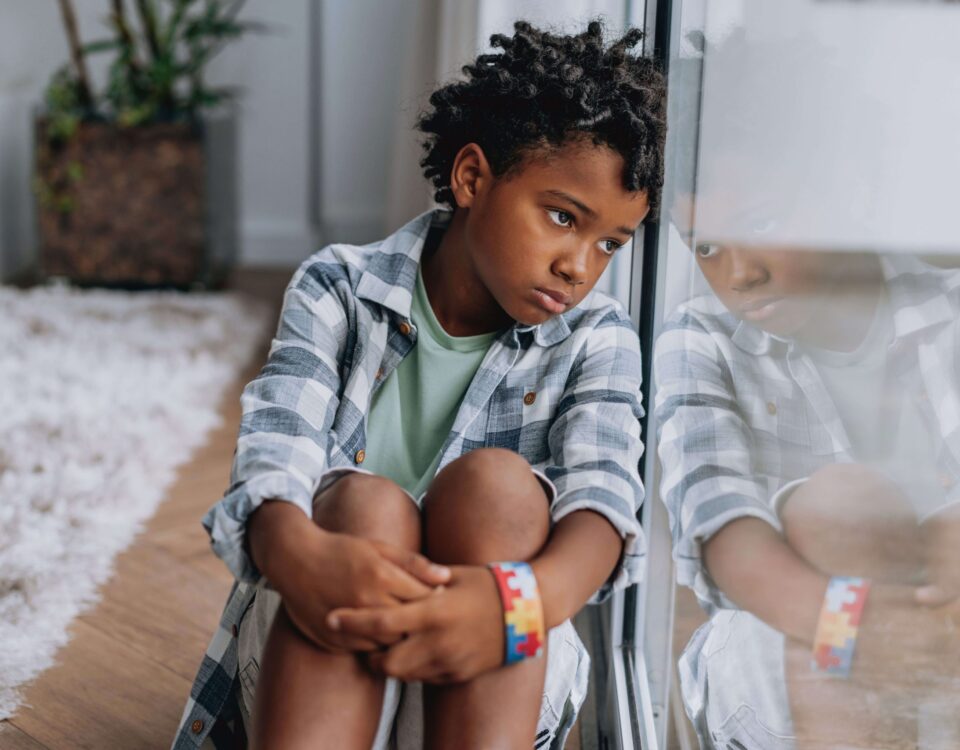- Have any questions?
- 412-123-4567
- noreply@upmc.com
Anxiety and Depression in Children and Teens

Depression and anxiety are common among children and teens and often go hand in hand. In fact, the Centers for Disease Control and Prevention (CDC) estimate that up to 75% of those with one condition will show symptoms of the other. It's important for parents and guardians to be able to identify signs of depression or anxiety so they can help their children get the right care and treatment.
Signs of Depression
Depression can affect children and teens in many of the same ways it affects adults. Symptoms of depression in children may include:
- Changes in appetite, including loss of appetite or eating more.
- Changes in sleep patterns, including needing more sleep or sleeping less.
- Difficulty concentrating or feeling that easy tasks are difficult.
- Frequent mood changes or bouts of irritability, anger, or hopelessness.
- Loss of interest in favorite toys, games, activities, or friends.
- Talking about feeling worthless, useless, or guilty.
- Statements about or consideration of harming themselves or others.
Signs of Anxiety
If your child shows these symptoms, anxiety may be the cause:
- Avoiding everyday situations or activities because they cause anxiety.
- Believing something bad will happen if things aren't done a certain way.
- Crying at school, having behavioral problems, or changes in grades.
- Expressing persistent fears, such as missing the bus, forgetting homework, or having a pop quiz.
- Feeling constantly tense, worried, or on edge.
Watch For Warning Signs
Children and teens may not have the language skills yet to label or describe their experiences, and depression and anxiety also can cause physical problems. Therefore, they may express their distress through their behavior or complaints.
In addition to the above, look for signs such as:
- Fatigue.
- Frequent urination or diarrhea.
- Headaches.
- Abdominal pain or nausea.
- Trouble sleeping, including frequent nightmares.
- Refusing to eat or eating constantly.
- Changes in school performance.
- Avoidance of school or activities they previously enjoyed.
- Difficulties understanding or relating to others.
- Changes in friendships.
- Wanting to or spending more time alone (isolation).
- New fears or worries.
- Self-injury or suicidal talk or behaviors.
- Uncharacteristic or unusual behavior, including suspicion of the use of alcohol or drugs.
Identifying Stressors
While often anxiety and depression do not have an easily identifiable trigger tune in to your child more, especially during times of change. Look for situational signs like:
- Any event that may cause public embarrassment or shame.
- Bullying, be it online or face to face.
- Failure to achieve an important goal or milestone.
- Recent break-up with friends or significant other.
- Significant changes to the family unit or relationships within the family.
You know the child or young adult in your life best, so trust your feelings. If you are concerned start by asking how things are going and how they are feeling. Ask their teacher, guidance counselor, coach or other adults in their life for their observations; this will help provide a more well-rounded view of behavior especially at times of the day and with others. These conversations can contain important observations and lead to necessary next steps.
When to Talk to Their Doctor
Any time you have concerns about your child's health, talking to his/her primary care provider is a great first step. But when you are seeing any of the above or there is impact on the activities of daily life it is important to reach out for help. The medical provider can help determine what role, if any, depression and anxiety is playing and also if an underlying medical issue or developmental challenge could be causing or contributing to your child's symptoms. Together you can discuss any need for further evaluation, treatment plans, referrals to specialty care, and additional resources.
When to Get Emergency Help
If you or someone you know is having thoughts of self-harm or suicide, get help right away. You can always start by reaching out to your child's medical care team, but there are times when they may not be available, or your need is more immediate.
The following resources offer trained mental health counselors. They will listen, provide support, and connect you with additional resources, if necessary:
resolve Crisis Services (for those in Allegheny County): 1-888-796-8226.
988 Suicide & Crisis Lifeline: Call or text 988, or chat online at 988lifeline.org. Dialing 988 connects callers to the National Suicide Prevention Lifeline.
Crisis Text Line: Text HOME to 741741.
Disaster Distress Hotline: 1-800-985-5990.
Veterans Crisis Line: Dial 988, then select option 1. Or, text 838255 or chat online at veteranscrisisline.net.
Call 911 if it's an emergency and you need immediate help.
Source: Data and Statistics on Children's Mental Health | CDC



